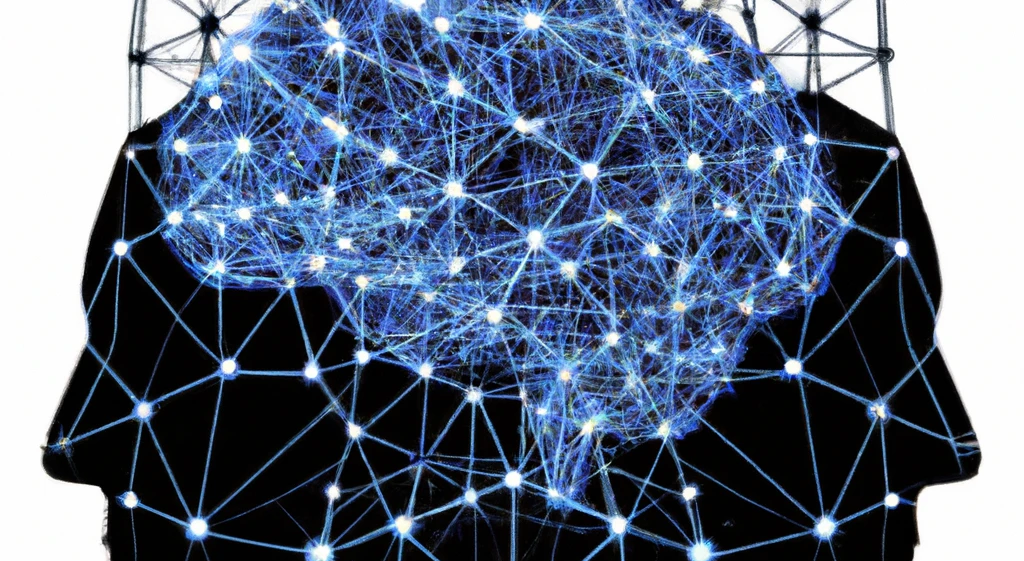“Knowledge is power.” – Sir Francis Bacon

The year was 1597. The cobbled streets of London bustled with energy as scholars and thinkers gathered at the renowned Gresham College. Amidst the hum of scholarly debates and the rustling of parchment, a distinctive voice rang out, drawing the crowd’s attention. Sir Francis Bacon, with his intense gaze and commanding presence, stood addressing the audience. “Knowledge,” he proclaimed, “is power.” The murmurs grew louder, with many nodding in agreement, while others exchanged quizzical glances. A young scholar nearby scribbled the words into his notebook, not realizing he was jotting down a phrase that would resonate through the ages. Little did the audience know that this statement would not only define an era but also become a driving force behind humanity’s relentless pursuit of democratization. From the Gutenberg press to the dawn of artificial intelligence, this ethos has been at the heart of every revolution. In every age, there emerges a force that turns barriers into bridges, empowering each soul to partake in the shared tapestry of human progress. Let me take you through this journey of democratization of various aspects of our being Democratization of Knowledge – The Gutenberg Effect In the mid-15th century, a revolutionary invention emerged that would change the trajectory of human history – the printing press, introduced by Johannes Gutenberg. This wasn’t just a machine; it was a beacon of change. Before its advent, books were painstakingly copied by hand, often by monks, making them rare and costly. This scarcity meant that knowledge was the privilege of the elite few. With the printing press, books became more accessible. The Gutenberg Bible, one of the earliest major books printed, signaled a new era where ideas could be mass-produced and disseminated. Knowledge was no longer chained to the shelves of the affluent; it started reaching the common man, leading to an era of enlightenment, scientific discoveries, and cultural revolutions. Democratization of Entertainment – From Theatres to Television Before television became a household staple, grand theaters were the entertainment hubs. Theaters offered live performances but were exclusive, with limited seats and high prices. Then, the transformative invention, television, arrived. It promised widespread accessibility, breaking the theater’s exclusivity. Families gathered around their TV sets for diverse shows and news. Television bridged socioeconomic gaps, democratizing entertainment. It became a powerful medium shaping cultures and societies, making global events local and local events global. Television did more than entertain; it became a universal window to the world, ensuring everyone, regardless of background, had a front-row seat. Democratization of Access to Any Part of the World through The Digital Age and the Internet The late 20th century saw the groundbreaking invention of the internet, transforming how we access and share information. In the pre-digital age, gaining insights about distant places was cumbersome, relying on books, travel, or word of mouth. Knowledge had gatekeepers like limited libraries and selective institutions. The internet changed this by offering unrestricted access. The World Wide Web connected people worldwide. A farmer in India could learn modern farming from a tutorial, and a student in Brazil could collaborate with peers in Japan. This global reach had profound impacts. Businesses entered global markets through e-commerce, artists reached a worldwide audience, and educators taught students across borders. In essence, the internet created a global village, democratizing experiences. No matter where you were, the world was just a click away. Democratization of Entertaining with Content Creation – The Rise of Platforms The entertainment industry, long controlled by established media houses, saw a major shift in the 21st century with the rise of digital platforms like YouTube. Anyone with a camera and creativity could become a content creator, leading to the emergence of YouTubers and democratizing content creation. SoundCloud did the same for musicians, enabling them to bypass record labels. App ecosystems like the App Store revolutionized software development, allowing indie developers to reach millions. These platforms not only changed content creation but also community building. Patreon allowed fans to support creators financially. This wave of democratization gave diverse voices a platform, enriching the global entertainment landscape. In addition TikTok, my ex-employer, was a game-changer which brought entertainers closer to their audience. It shifted the perception of entertainers from distant figures to relatable friends, further democratizing entertainment. In essence, 21st-century digital platforms transformed entertainment, making it community-driven and marking a democratic era. The Latest Frontier – Democratization of Quantitative Intelligence Quantitative intelligence, in its essence, pertains to the ability to handle and process numerical and logical information. It’s the capability that enables one to solve mathematical problems, analyze data, recognize patterns, and make logical deductions. This form of intelligence is integral in fields ranging from engineering and finance to data analytics and research. As we delve deeper into the 21st century, we are witnessing an era where technology, especially generative AI, is playing a pivotal role in amplifying this quantitative intelligence. Unlike traditional software, which operates based on explicit programming, generative AI learns from data and can generate new data or insights. This means it can create content, designs, and even music, based on patterns it recognizes from vast data sets it’s trained on. For instance, in the realm of design, my 13 year old nephew is able to add/remove objects from a photo without any training in Photoshop or such tools. In businesses, non-English speaking businesses people are able to draft emails and responses true to their emotions. In large organizations, important meetings that decide the course of their companies future are being transcribed in real time and then stored to be queried by all employees, with access, to avoid any kind of ambiguity on the mission statement of the founders/CEO/management. The democratizing power of AI lies in its accessibility. As tools and platforms incorporating AI become more available, even small businesses or individuals can harness the power of quantitative analysis that was once the domain of large corporations or specialized researchers. Think of a local retailer predicting inventory needs using AI or an independent artist utilizing AI to optimize
Imagine limiting our understanding of electricity to just a toaster or a refrigerator

The tale I am about to narrate began on a day brimming with the usual hum of creativity at the co-working space we meet. It was here that Sumit and I found ourselves weaving an itinerary so personalized to my needs that what transpired in those seven minutes blew both our minds. Each minor tweak in the input led to the Large Language Model (LLM) further refining the itinerary, outclassing even what a professional had drafted. That moment was nothing short of an epiphany, marking the true birth of mPrompto in our minds. How it began Our venture into the world of AI was not a sudden leap, but a gradual immersion. The seeds of LLM were sown during our introduction to ChatGPT, and further nurtured after experiencing the new way AI aided browsing using Microsoft Edge’s chat feature. Then the whole story took a significant turn when Sumit, mPrompto’s co-founder, visited the Microsoft office in January 2023. He came back with treasure trove of experience and an insight that we both agreed as our future path. That visit plunged us both into an exhilarating journey of understanding LLM’s and their capabilities, eventually leading us to mould a B2B friendly application philosophy rooted in this wondrous technology. Every day since that of epiphany has been a saga of relentless learning and applying those learnings in the world of AI. There hasn’t been a single day when we haven’t learnt something new, applied our learnings, or admired an absolute paradigm changing application from our contemporaries in the realm of generative AI. Andrew Ng’s metaphor of AI as electricity further ignited a profound revelation in our minds. As we began to view the world through this new prism, the monumental shifts AI is catalysing in every sphere of life became clearly evident. However, we also identified a glaring lacuna in the common understanding of AI. Much like the comprehension of electricity transcends beyond merely using appliances, grasping AI’s potential extends far beyond its current applications. Imagine if we only saw electricity through the lens of gadgets like toasters or refrigerators. That limited view might have hidden the amazing possibilities that electricity has brought into our lives. Analogously, by understanding AI solely through the lens of its applications, we risk a myopic understanding that hides its true transformative potential. The applications are but the tip of the iceberg, a mere glimpse into the vast expanse of possibilities that AI holds. AI, like electricity, has the potential to reshape our world and lead us into an exciting future full of new possibilities. Path ahead As our voyage progressed, Sumit and I naturally veered towards a vertical focused on augmenting customer interactions and bridging the gap between the vision of senior management and the execution by employees in a B2B setup. The world of AI unfurled a plethora of use cases before us, ranging from Predictive Analytics to Enhanced CRM systems, Automated Customer Support, and beyond. Although we embarked on a specific vertical, our vision is not bounded by just that, we continue with zeal to explore further. While we’ve articulated our strategic roadmap in our recently published research paper, we’re committed to maintaining a jargon-free dialogue around AI. We’ve initiated a proprietary tool-building process (currently under patent) that we believe will significantly set us apart from our peers. A cornerstone of our insights throughout this journey has been the notion of ‘Responsible Human in the Loop’, which we see as the bedrock of a resilient AI system in a B2B environment. The harmonious blend of human insight with AI’s analytical might is guiding us on a path towards operational superiority. This core philosophy is intricately woven into the fabric of all the products we’ve developed. As I reflect upon our journey, a profound sense of gratitude envelops me towards the tireless AI researchers and leaders. The endeavours of stalwarts in generative AI like Anthropic and Open AI are the guiding stars in our voyage. The tools and knowledge they provide serve as catalysts, propelling our journey into the captivating realm of AI. Sumit and I are like streams in the vast ocean of dreamers and doers, standing at the threshold of a revolution, flowing with the current. As we delve deeper, we realize that the narrative of mPrompto is just one thread in the expansive and intricate tapestry of AI’s impact on the business domain and beyond. With this in mind, my intention is to initiate a series of dialogues with you, the reader, where I aim to illuminate various AI concepts, delve into some fascinating applications within this multi-modal generative AI domain, and also provide a sneak peek into the exciting projects we are engrossed in. Author – Ketan Kasabe, Co-founder: mPrompto